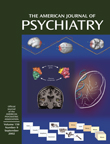Cognitive Rehabilitation in Old Age
As the proportion of old and very old people in industrialized societies steadily increases, the impact on health care systems of the cognitive losses associated with normal and pathological aging grows greater as well. In this brief volume, the editors and authors review the current possibilities for ameliorating these deficits.
The book is organized into four parts. Part 1 considers theoretical and methodological issues in research on cognitive rehabilitation in the elderly. Part 2 reviews research on memory training in normal aging. Part 3 reports the influences of lifestyle factors on cognitive rehabilitation in the elderly, including chapters on the impact of physical exercise, smoking, depression, and loss of executive function. Part 4 contains three chapters on the assessment and rehabilitation of cognitive and psychosocial problems in dementia and one concerned with cognitive rehabilitation after stroke.
Parts 1 and 2 will probably be of interest to memory researchers and gerontologists, but less so to readers seeking more practical guidance. The authors of these chapters detail (with a fair amount of redundancy) several strategies employed to enhance memory in the normal elderly, which, if they work at all, rarely generalize beyond the specific conditions of practice. Furthermore, many of the studies used mnemonic techniques that were literally invented by the ancient Greek orators. These techniques require considerable practice to learn and a fair amount of cognitive capacity to deploy successfully. Not only do the elderly fail to make use of these procedures outside the laboratory, neither do the memory researchers themselves.
As an outsider to the field, I was struck by one author’s description of “the contrast between high performance in daily life and less than optimal performance in the laboratory” of the normal elderly participants in his research. Clearly, much research in this area has assumed practical consequences of laboratory-based “deficits” in the elderly that may not exist. Researchers have sought the causes of every age-related deficit, apparently in a Ponce de Léon–like quest to restore cognitive youth. Evidently, little if any attention has been directed at teaching the elderly basic skills required for everyday living, such as money management.
The four chapters on lifestyle influences are more useful. The chapter on smoking presents the physician’s predicament well. Smoking is bad for health, but it is a difficult habit to break, even for the young. Furthermore, nicotine is a cognitive stimulant. Should an elderly person with marginal cognitive function attempt to quit? The other chapters in this section are well done except for two problems. There is almost no consideration of the impact of medications in general and psychiatric medications in particular on cognitive function. This is a glaring weakness, because the elderly are major consumers of prescription and over-the-counter medications. A second omission is the failure to consider the impact of mentally stimulating leisure activities on cognitive aging. In fairness, most of this work appeared after the present volume went to press.
The final section considers psychological and environmental treatments for dementia and stroke. Remarkably, there is no mention of cholinesterase inhibitor therapy for memory impairment in Alzheimer’s disease. There is some useful information in the chapters on psychosocial rehabilitation of dementia patients and the treatment of stroke.
In summary, this volume will not be very useful to psychiatrists and geriatricians, although it may be valuable to geropsychologists.



